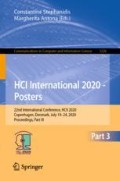Abstract
In Community Question-Answering (CQA) sites, the question is often the starting point for information exchange, eliciting a series of responses that result in a response network (RN) whose nodes are the postings, while edges represent the responses between postings. This argument is supported by framing theory which posits that different message forms, their “frames”, lead to different user responses.
This research investigated how question frames influenced their resulting RNs. Question frames were operationalized as conversational and informational frames. Social network analysis was conducted to explore the RNs of different question frames for both Science, Technology, Engineering and Mathematics (STEM) and non-STEM topics.
Interestingly, most STEM conversational questions had postings that directly responded to the question, whereas informational questions attracted more comments on response postings. However, no significant differences were found in the non-STEM topics. Our research suggests that users should appropriately frame questions to generate desired responses from the community.
Access this chapter
Tax calculation will be finalised at checkout
Purchases are for personal use only
References
Ackland, R., O’Neil, M.: Online collective identity: the case of the environmental movement. Soc. Netw. 33(3), 177–190 (2011)
Adamic, L.A., Zhang, J., Bakshy, E., Ackerman, M.S.: Knowledge sharing and Yahoo Answers: everyone knows something. In: Proceedings of WWW 2008, pp. 665–674. ACM (2008)
Bighash, L., Oh, P., Fulk, J., Monge, P.: The value of questions in organizing: reconceptualizing contributions to online public information goods. Commun. Theory 28(1), 1–21 (2018)
Campbell, K.E., Lee, B.A.: Name generators in surveys of personal networks. Soc. Netw. 13(3), 203–221 (1991)
Ciardelli, I.: Questions as information types. Synthese 195(1), 321–365 (2016). https://doi.org/10.1007/s11229-016-1221-y
Cui, Y., Wise, A.F.: Identifying content-related threads in MOOC discussion forums. In: Proceedings of the Second (2015) ACM Conference on Learning @ Scale - L@S 2015, pp. 299–303. ACM Press (2015)
Efron, M., Winget, M.: Questions are content: a taxonomy of questions in a microblogging environment. Proc. Am. Soc. Inf. Sci. Technol. 47(1), 1–10 (2010)
Goffman, E.: Frame Analysis: An Essay on the Organization of Experience. Northeastern University Press, Boston (1975)
Maxwell Harper, F., Moy, D., Konstan, J.A.: Facts or friends?: Distinguishing informational and conversational questions in social Q&A sites. In: Proceedings of the 27th International Conference on Human Factors in Computing Systems, pp. 759–768. ACM Press (2009)
Ivaturi, K., Chua, C.: Framing norms in online communities. Inf. Manag. 56(1), 15–27 (2019)
Jurczyk, P., Agichtein, E.: Discovering authorities in question answer communities by using link analysis. In: Proceedings of the Sixteenth ACM Conference on Information and Knowledge Management, p. 919. ACM Press (2007)
Krueger, S.: STEM and non-STEM library users have increased their use of e-books. Evid. Based Libr. Inf. Pract. 12(2), 178–180 (2017)
Ladhari, R., Massa, E., Skandrani, H.: YouTube vloggers’ popularity and influence: the roles of homophily, emotional attachment, and expertise. J. Retail. Consum. Serv. 54, 102027 (2020)
Lai, M., Tambuscio, M., Patti, V., Ruffo, G., Rosso, P.: Stance polarity in political debates: a diachronic perspective of network homophily and conversations on Twitter. Data Knowl. Eng. 124, 101738 (2019)
Malinick, T.E., Tindall, D.B., Diani, M.: Network centrality and social movement media coverage: a two-mode network analytic approach. Soc. Netw. 35(2), 148–158 (2013)
van Merode, F., Nieboer, A., Maarse, H., Lieverdink, H.: Analyzing the dynamics in multilateral negotiations. Soc. Netw. 26(2), 141–154 (2004)
Newman, M.: Networks. Oxford University Press, Oxford, New York (2018)
Thrasher, R.H.: Shouldn’t Ignore These Strings: A Study of Conversational Deletion. Xerox University Microfilms (1974)
Van Quaquebeke, N., Felps, W.: Respectful inquiry: a motivational account of leading through asking questions and listening. Acad. Manag. Rev. 43(1), 5–27 (2018)
Vicari, S.: Measuring collective action frames: a linguistic approach to frame analysis. Poetics 38(5), 504–525 (2010)
Wasserman, S., Faust, K.: Social Network Analysis: Methods and Applications (Structural Analysis in the Social Sciences). Cambridge University Press, New York (1995)
Welser, H., Gleave, E., Barash, V., Smith, M., Meckes, J.: Whither the experts? Social affordances and the cultivation of experts in community Q&A systems, pp. 450–455 (2009)
Welser, H.T., Gleave, E., Fisher, D., Smith, M.A.: Visualizing the signatures of social roles in online discussion groups. J. Soc. Struct. 8(2), 1–32 (2007)
Author information
Authors and Affiliations
Corresponding author
Editor information
Editors and Affiliations
Rights and permissions
Copyright information
© 2020 Springer Nature Switzerland AG
About this paper
Cite this paper
Wu, Q., Goh, D.HL., Lee, C.S. (2020). The Framing Effect of Questions in Community Question-Answering Sites. In: Stephanidis, C., Antona, M. (eds) HCI International 2020 - Posters. HCII 2020. Communications in Computer and Information Science, vol 1226. Springer, Cham. https://doi.org/10.1007/978-3-030-50732-9_33
Download citation
DOI: https://doi.org/10.1007/978-3-030-50732-9_33
Published:
Publisher Name: Springer, Cham
Print ISBN: 978-3-030-50731-2
Online ISBN: 978-3-030-50732-9
eBook Packages: Computer ScienceComputer Science (R0)

